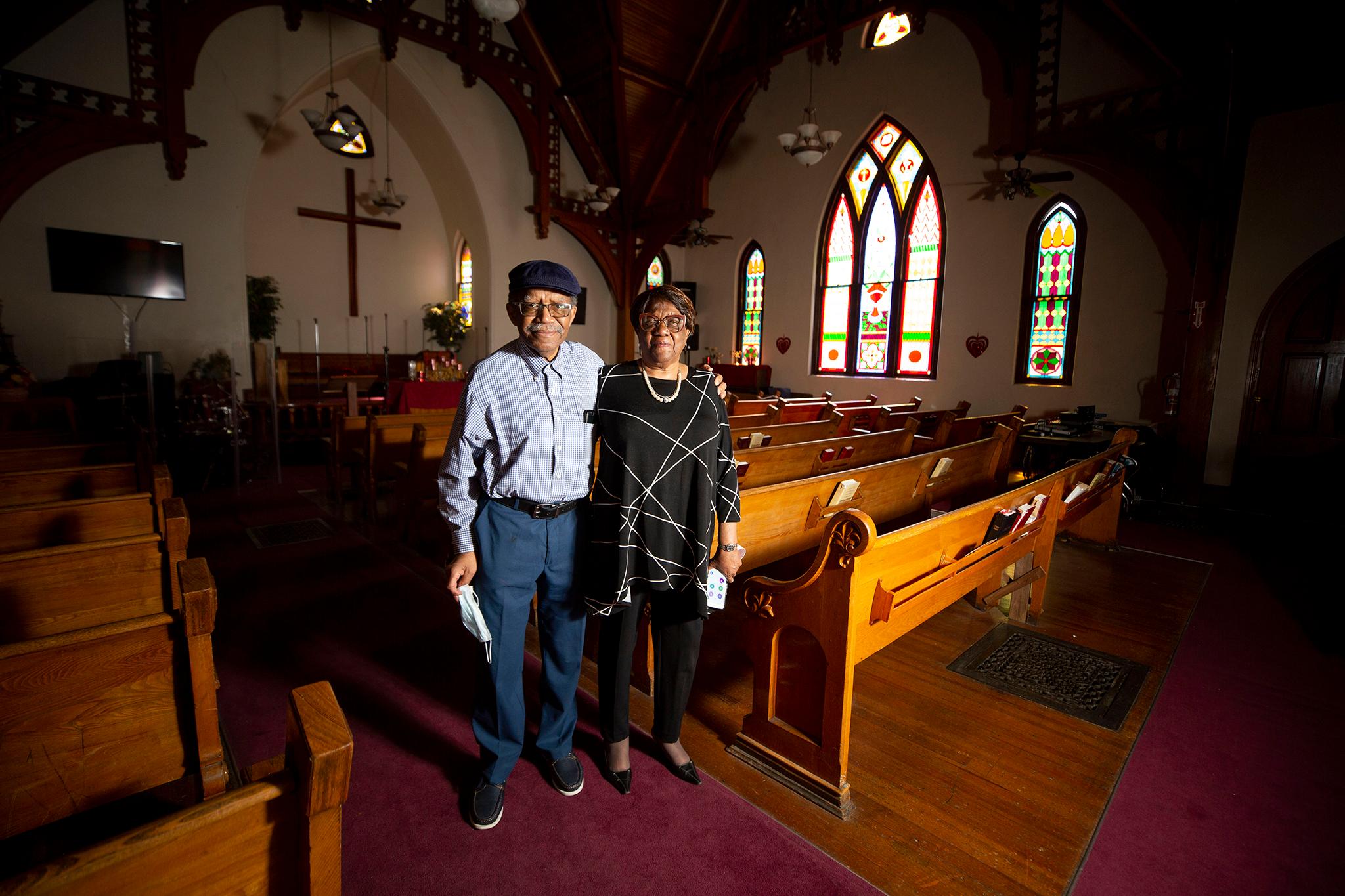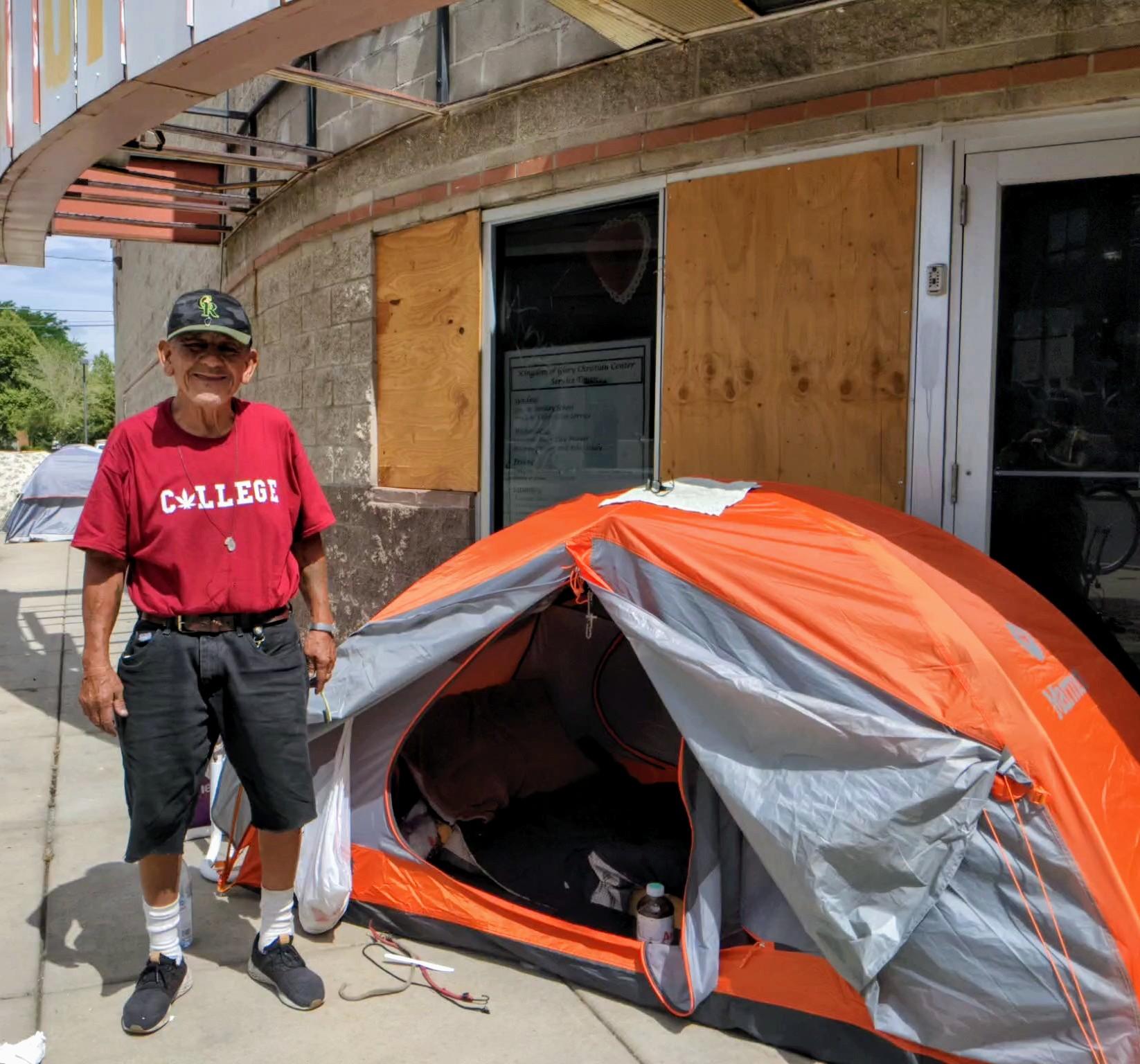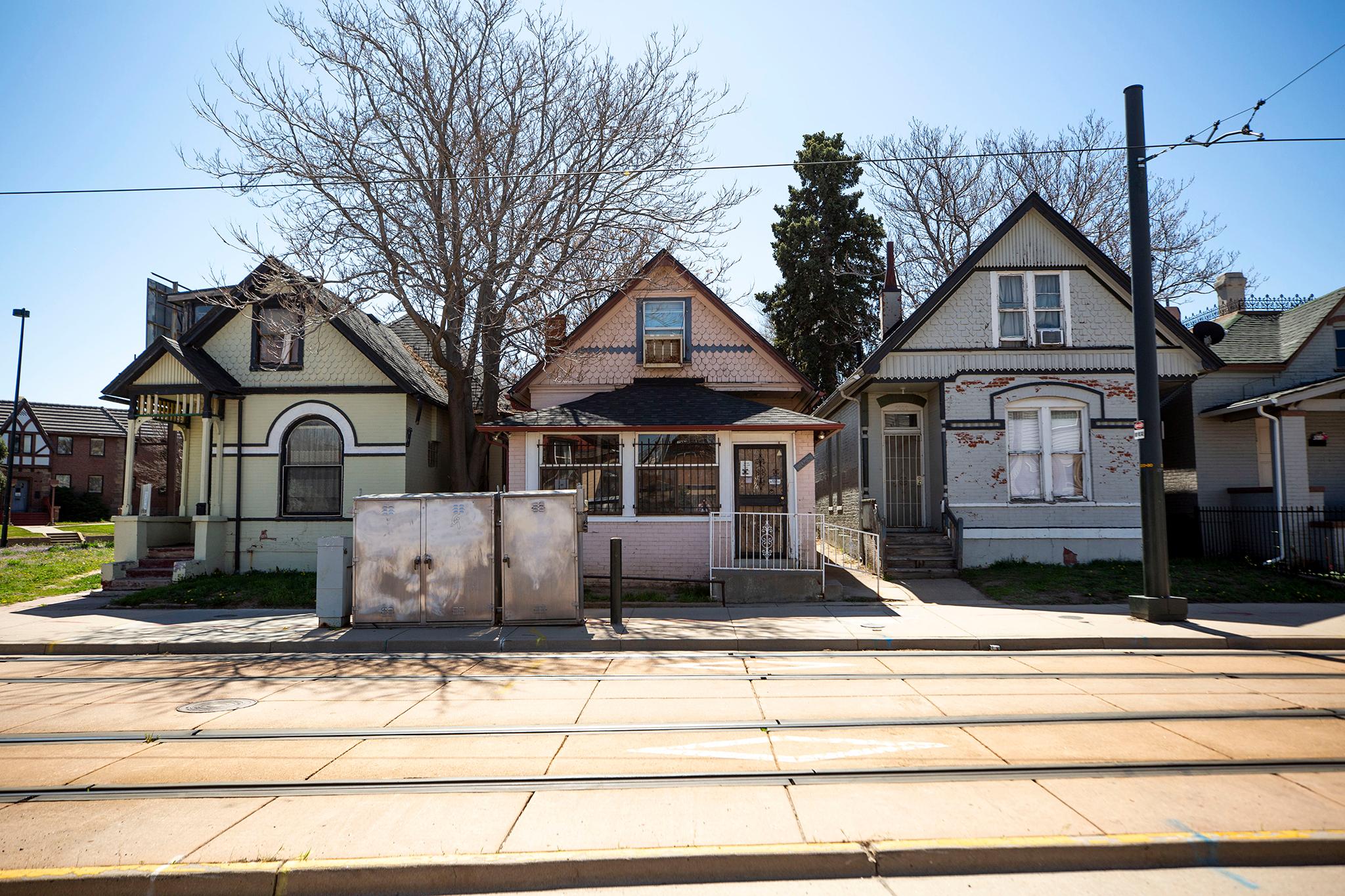Plans to build 36 apartments in Five Points for some of Denver's poorest residents have been stalled because of parking.
Eddie Woolfolk, who runs a community development nonprofit headquartered next door to her Agape Christian Church in Five Points, has dreamed for years of building deeply affordable housing on land she owns nearby. It's a part of town where luxury apartment buildings tower over the tents of people experiencing homelessness.
Neighbors with homes told the city's Board of Adjustment for Zoning that their parking woes would be exacerbated by the proposal Woolfolk has put together with her pastor husband and a team of architects and developers. On July 14, the five-member board appointed by the mayor to consider waivers of zoning requirements issued a final denial of a request to include six spaces for cars for residents of the 36 units and for staff who will be providing services at Charity's House Apartments. Under zoning rules, 22 spaces were required for the 36 units.
Lynne Bruning of the Welton Corridor Registered Neighborhood Organization brought her opposition to the Board of Adjustment. She said later in an email to Denverite that while she found Woolfolk's project "admirable," she believed that it would lead to more people parking their cars on the streets, something she said the mixed neighborhood of residences and businesses could not absorb.
Woolfolk sounded tired after the July 14 hearing.
"It just needs to happen," Woolfolk said of the homes she envisions for people who have experienced homelessness, are disabled or have been in prison. Each of the 36 one-bedroom apartments would be restricted to households that earn no more than 30 percent of area median income, which now is $19,500 a year for one person. The restrictions, which would be in place for at least 99 years, would mean one person living alone at Charity's House would pay no more than $540 a month if the building were ready to rent today.
"I'm struggling in trying to get the project done," Woolfolk said.

Her options now are to go to district court to appeal the Board of Adjustment denial; revise her plans to meet the zoning code, which her architects say would add costs to the $13 million project and result in fewer housing units; or seek parking spaces to rent within 1,500 feet of the site, at 3020, 3022 and 3026 Welton Street, just around the corner from RTD's light rail station stop at 30th Avenue and Downing Street. The three cottages that now sit on the site would be razed to make way for the new building. They are currently home to people in a transitional program Woolfolk runs for ex-offenders.
The request for a parking variance had support from Candi CdeBaca, the councilwoman for the area, and from Britta Fisher, head of the city's housing department. Denver's Community Planning and Development Department had agreed with Woolfolk's team that the lot's size and positioning made 22 parking spaces impossible. Tina Axelrad, the city's zoning administrator, said that she thought the Charity's House situation met criteria for being granted an exception from the zoning code, but that the Board of Adjustment for Zoning had to make its own determination.
Austin Keithler, the Board of Adjustment's technical director, noted that the vote was two in favor of the variance and three opposed, saying in an email that that was evidence the decision was difficult.
"Everyone agrees that more affordable housing is needed in Denver. There's no question on that," Keithler said. "The board members that voted against the variance felt that the (parking) deficiency was too great and would be too impactful to the neighborhood."
Axelrad, the city's zoning administrator, said: "Right now, our code is the code."
But she added that a broad evaluation is underway, looking at whether some code provisions should be changed because they stand in the way of affordable housing.
"Parking is definitely on that list," Axelrad said, adding that the ruling against Charity's House "definitely points to a need."
It's not just planners who have been taking a hard look at parking. The same week that the Board of Adjustment denied Charity's House, Denver City Council members got a briefing from the city's Climate Action Task Force, which has recommended increasing meter and other parking fees to raise money to fight climate change.
"There's a lot of discussion of our history of accommodating parking and whether it's the best way forward," Axelrad said.
Plans to change parking requirements to benefit future affordable housing development are encouraging, said Oriana Sanchez, a Denver-based project manager for BlueLine Development and Woolfolk's partner in the Charity's House project.
But for Charity's House, "it became parking over people," Sanchez said.
Sanchez said that public funding that would make Charity's House apartments affordable might have to be returned while the architects and accountants re-assess. Then funding would have to be applied for again. Earlier this year, the Colorado Department of Local Affairs's Division of Housing announced it had awarded a $1.2 million grant for the $13 million Charity's House project, which has taken four years to get to this point. The project also has vouchers from the Denver Housing Authority and tax credits.
In the past, Montana-based BlueLine worked with Saint John's, Denver's Episcopal Cathedral, on the Saint Francis Apartments at Cathedral Square, which has 49 units and support services for people who have recently experienced homelessness. BlueLine also built a 50-unit, low-income, permanent supportive housing complex on land that Aurora's Elevation Christian Church sold to the Second Chance Center, a nonprofit that provides job training, mentoring and other support for people who were once incarcerated.
Sanchez said she spoke with neighbors about steps that Charity's House would take to allay their parking concerns, including buying RTD passes for residents and staff and adding more bicycle parking and including a bicycle repair shop in the development. Woolfolk said she expected most people moving into Charity's House would not be able to afford a car initially, and that when they did start earning more, they would likely move out.
The Board of Adjustment received more than a dozen letters in opposition to the request from Charity's House to include less parking than the rules require. But people in the neighborhood interviewed by Denverite said they saw Woolfolk's point of view.

Sam Bernard, a software engineer walking with his dog's leash in one hand and a cup of coffee in the other, was considering moving to Denver from Los Angeles. He was staying at a B&B in Five Points to see if it was a neighborhood he might want to live in. He said new affordable housing could help longer-term residents stay in a neighborhood that had become trendy.
"They tend to be the ones who built it," he said.
"If parking gets worse, maybe it will push more people to use public transit more," Bernard added.
Nolen Ramminger, a software consultant who was walking from his home to a coffee shop a block from the Charity's House site, said, "It makes sense for people without cars to live here."
Ramminger said that before he switched to working from home because of the coronavirus, he often took light rail to his downtown office even though he has a car. He said he has not found parking difficult in the neighborhood. While he believed most of the residents of Charity's House would not have cars, he thought that if they did, parking would not be significantly impacted.
"Tents block parking spaces, too," he said, referring to the homelessness that is so visible in Five Points.
Paul Franco said he had lived in Five Points off and on for most of his 67 years. A month ago, he moved from an apartment to the streets, moving occasionally because of clean-ups but settling for the last few weeks in front of a boarded up church six blocks west of the Charity's House site.
"I ran out of money," Franco said. He had been paying $920 a month, almost all his disability and pension income, in rent. He has worked as a landscaper, a security guard, a custodian and more.
The median rent for a Denver-area apartment was $1,454 in the second quarter of this year, according to a survey conducted by the University of Denver's Daniels College of Business and Colorado Economic and Management Associates and coordinated by the Apartment Association of Metro Denver. One-bedroom apartments in new buildings blocks from Franco's campsite were being advertised this week for more than $1,000, some at near $2,000 a month.
An apartment would be a "place to clean up and take care of yourself," Franco said.
Nodding at a bike parked in front of his tent, Franco said he wouldn't need a parking space. He would like a place with a garden, he said.
But "anything is better than nothing at all," he said.












